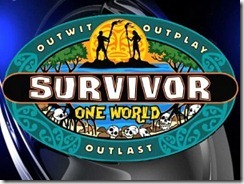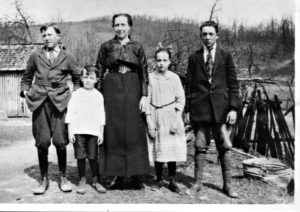 The 24th season of Survivor premiered on Feb. 15, 2012. America has not tired of watching contestants struggle and strain to outwit, outplay and outlast each other in the hope of winning 1 million dollars.
The 24th season of Survivor premiered on Feb. 15, 2012. America has not tired of watching contestants struggle and strain to outwit, outplay and outlast each other in the hope of winning 1 million dollars.
In every season successful contestants reveal that a key to winning is to identify which of the other challengers is the most threatening enemy.
A recent blog post by Mike Breen made me wonder if the American church has identified its most threatening enemies.
What is it that is seeking to vote the church off the island in America?Â
He suggests there are three enemies:
- a culture of CELEBRITY
- a culture of CONSUMERISM
- a culture of COMPETITION
CELEBRITY
The idea of celebrity is deeply woven into American culture and values. All you have to do is look at the ridiculous nature of Reality TV and you see how Americans are constantly craving celebrity (either to be a celebrity or to find the next celebrity and stalk their every move). Now there is nothing dark or sinister about “celebrity†in and of itself. You can’t find an argument that says Jesus wasn’t a huge celebrity in his day.
However, there is a difference between being famous and being significant. If Jesus was famous, it’s because he was doing something significant. The problem with many pastors is they make decisions, develop personas and define success from the lens of what will make them a celebrity/famous (even if they don’t know it or see that they are doing this). So in American church culture, it’s pretty easy to become a celebrity: Grow a HUGE church. Now all in all, it’s not terribly difficult to grow to be a giant church if you have the right tools at your disposal…but that doesn’t mean the ends justify the means of getting there.
For instance, though Jesus was a celebrity in his day, he was willing to say things that ran people off in droves. In fact, the book of Mark chronicles the way (from about the mid-point of the book on) how people left Jesus to where, at the end, virtually no one was left. NO ONE wants to be associated with him for fear of the consequences. That’s a Charlie Sheen-esque flameout (obviously without the character issues!). That’s not something you see too often in American churches.
I suspect it’s because riven deeply into the American psyche is the desire to be a celebrity. And American pastors are very susceptible to this. Many subtle things happen in people who desire to this kind of celebrity status:
* They can disengage community and isolate themselves, setting themselves up for moral failure.
* They can make decisions that are numbers driven and not always Kingdom driven.
* They can skew to a shallow understanding of the Gospel as opposed to a holistic one that leads people to discipleship.
* They can put the good of their church (their personal Kingdom) over the good of God’s Kingdom.
Question: In what ways are your decisions made by a subtle undercurrent of ambition and a hope for celebrity?
Mike Breen, “Obituary for the American Church,†Verge Network
More tomorrow!
 his lighted pear with the church design was a gift from a friend. I loved seeing it this morning and thinking about the ways it teaches the role of the church in the world. Our purpose as members is to get out of the four walls and shed light to others.
his lighted pear with the church design was a gift from a friend. I loved seeing it this morning and thinking about the ways it teaches the role of the church in the world. Our purpose as members is to get out of the four walls and shed light to others.

